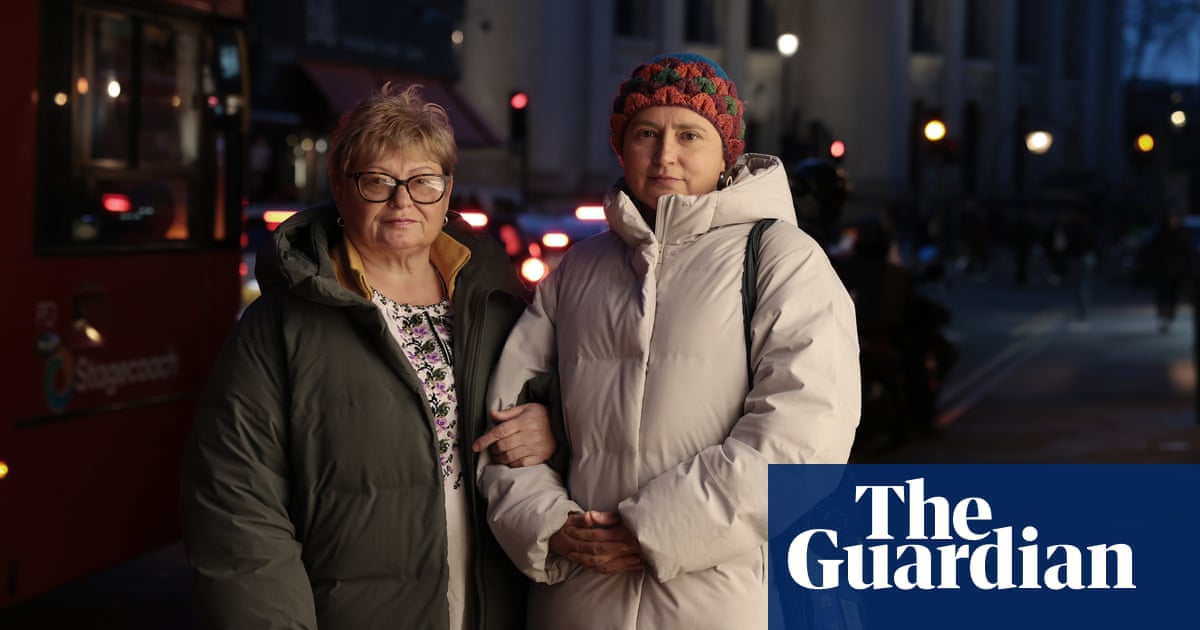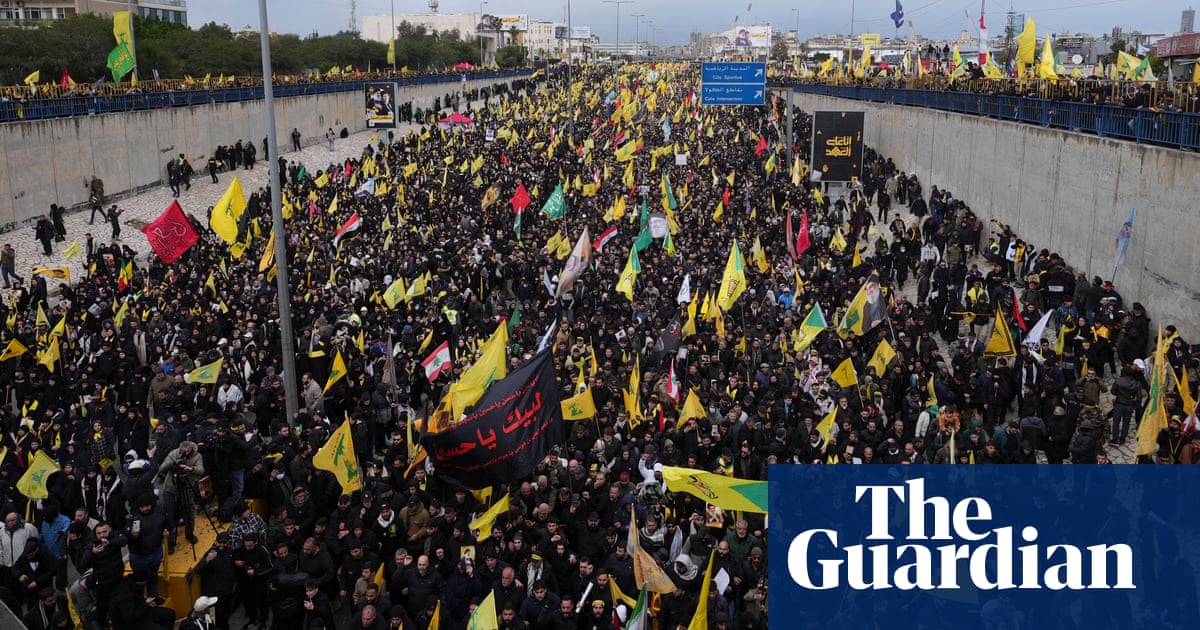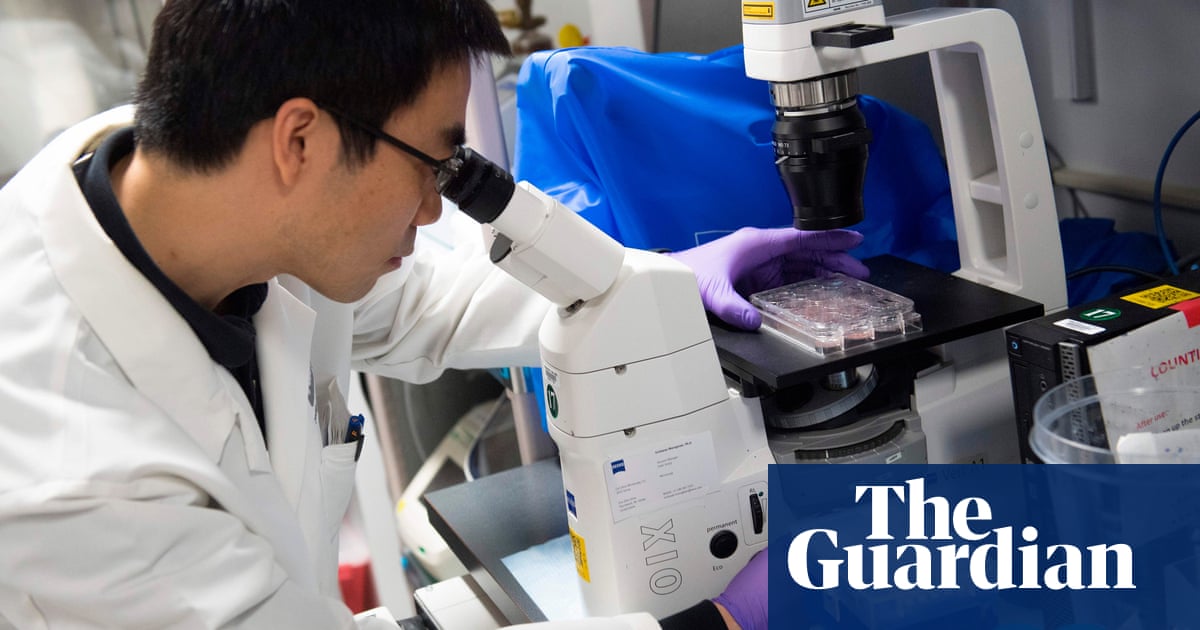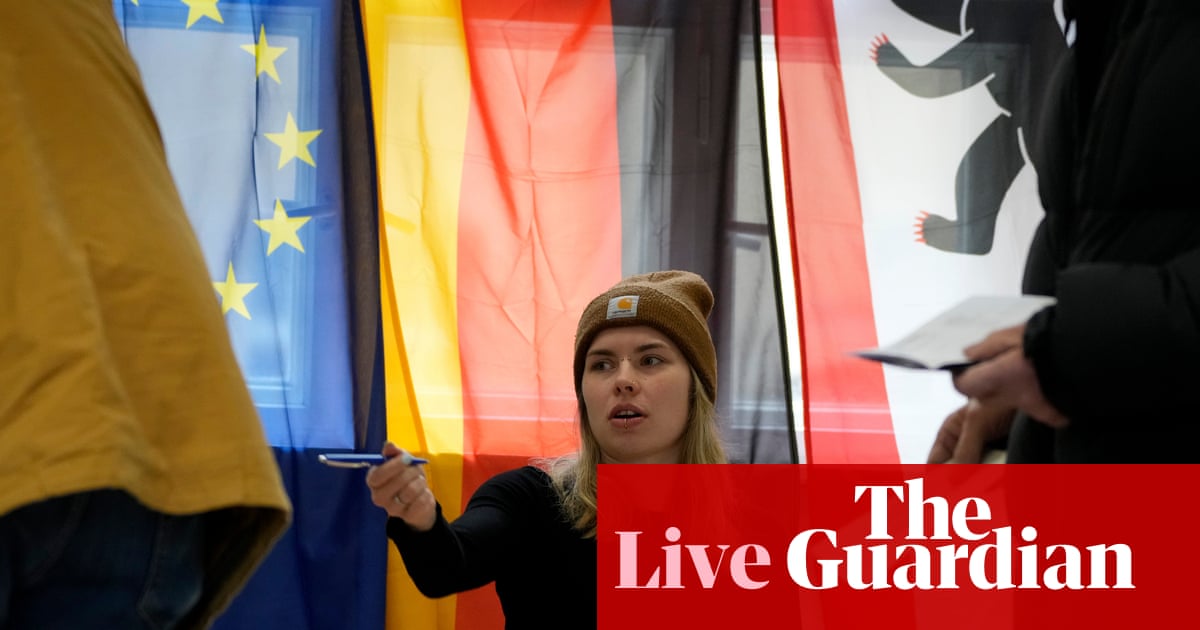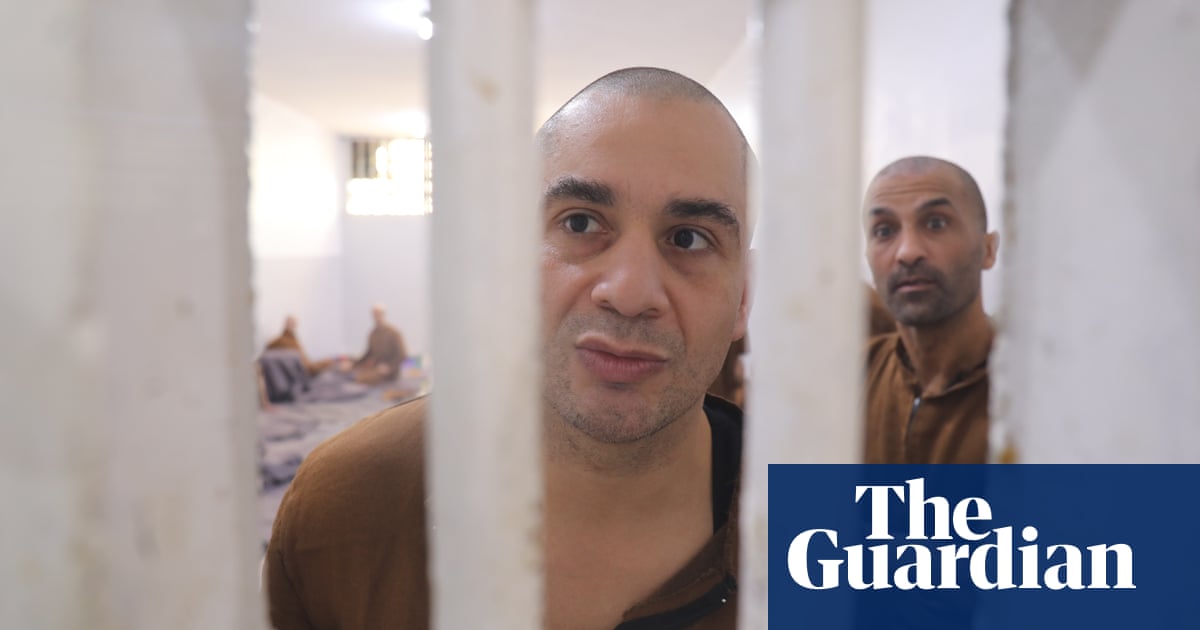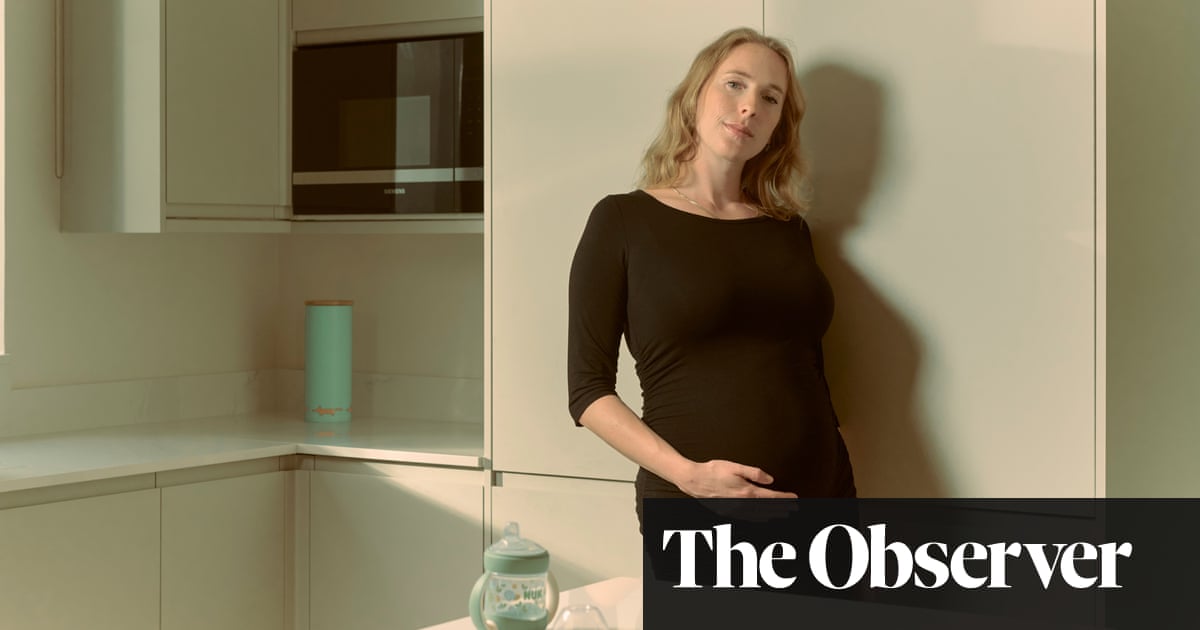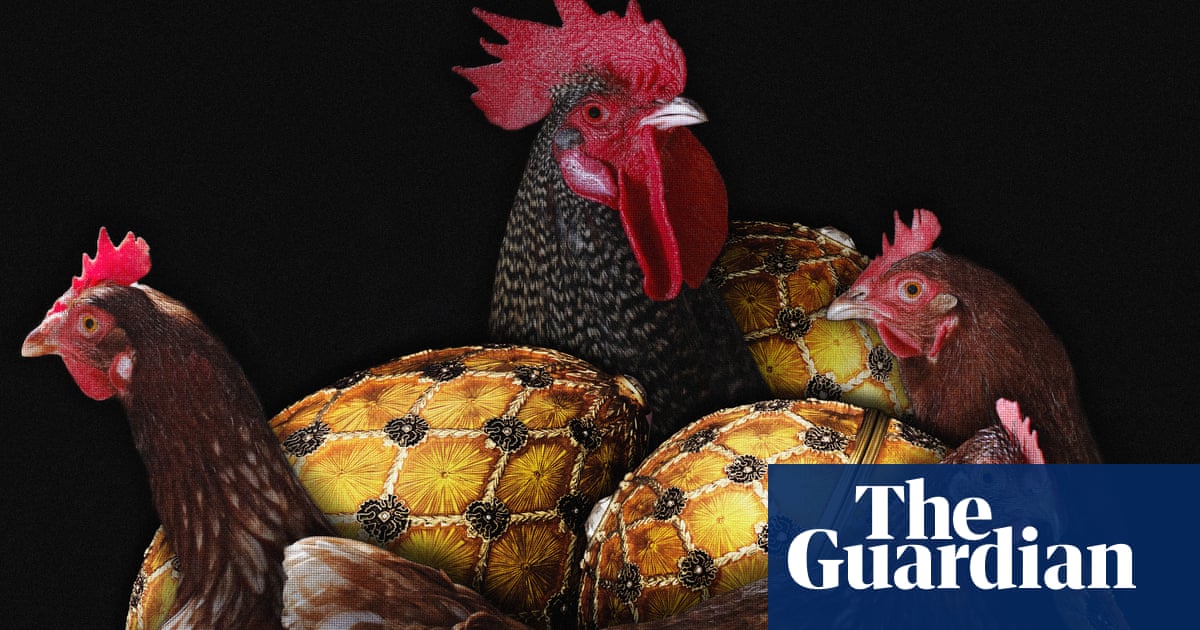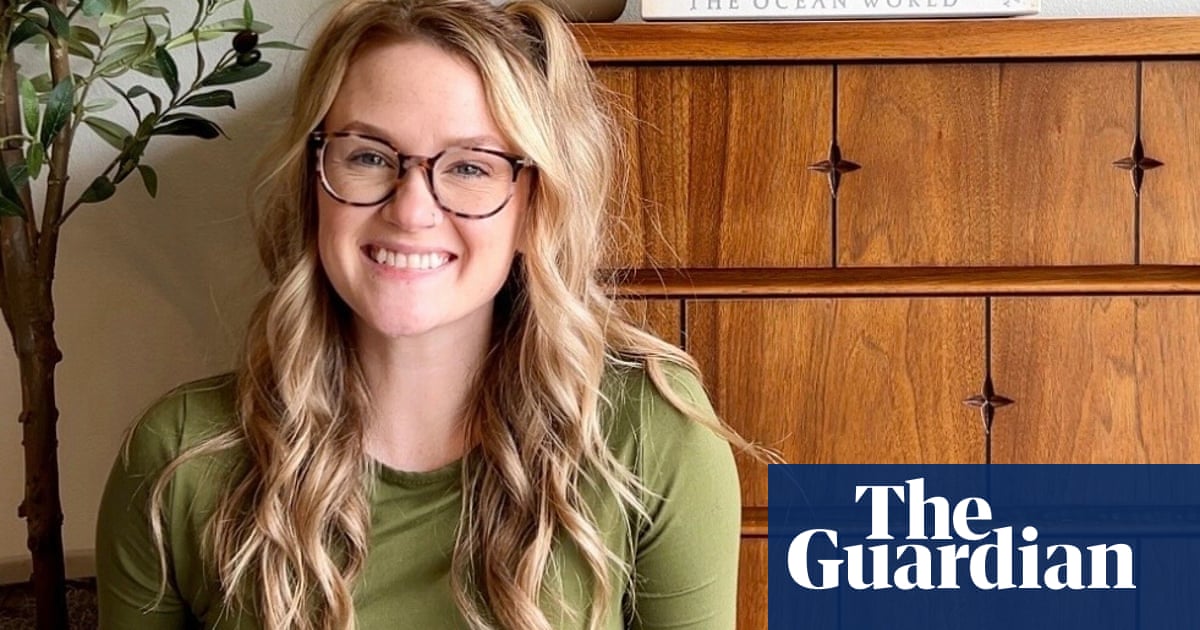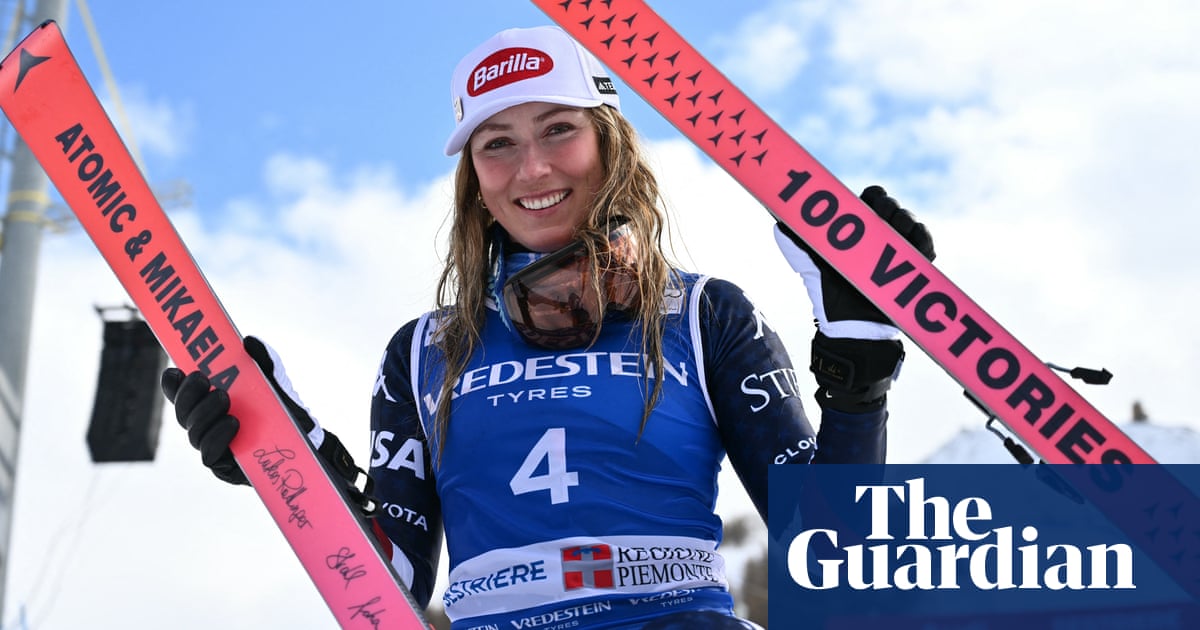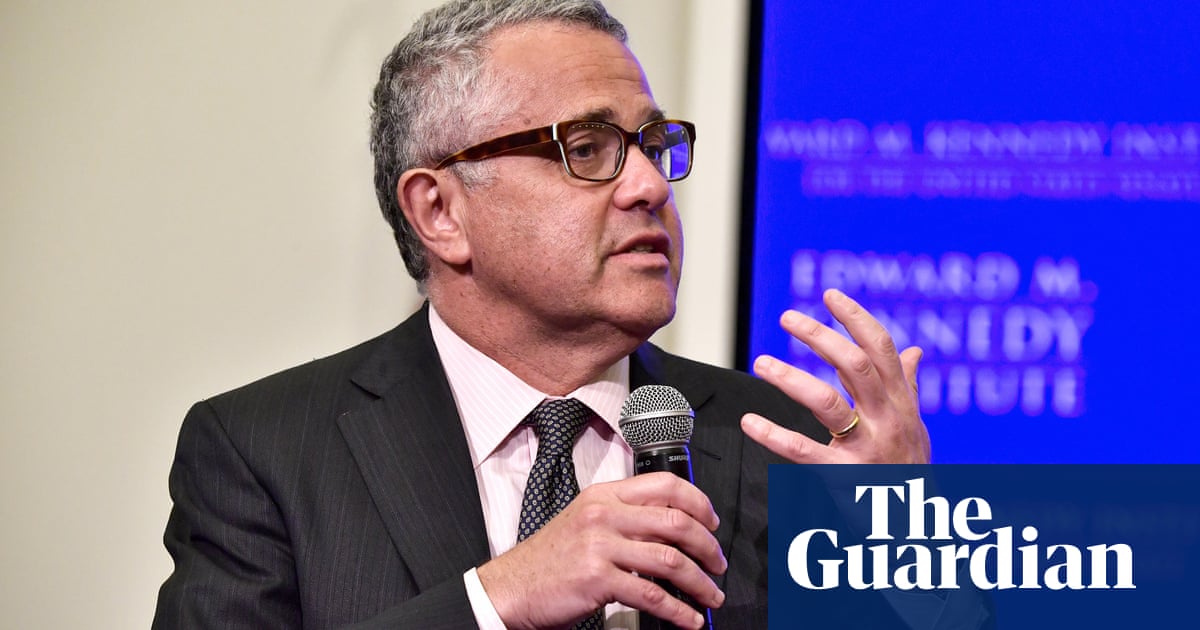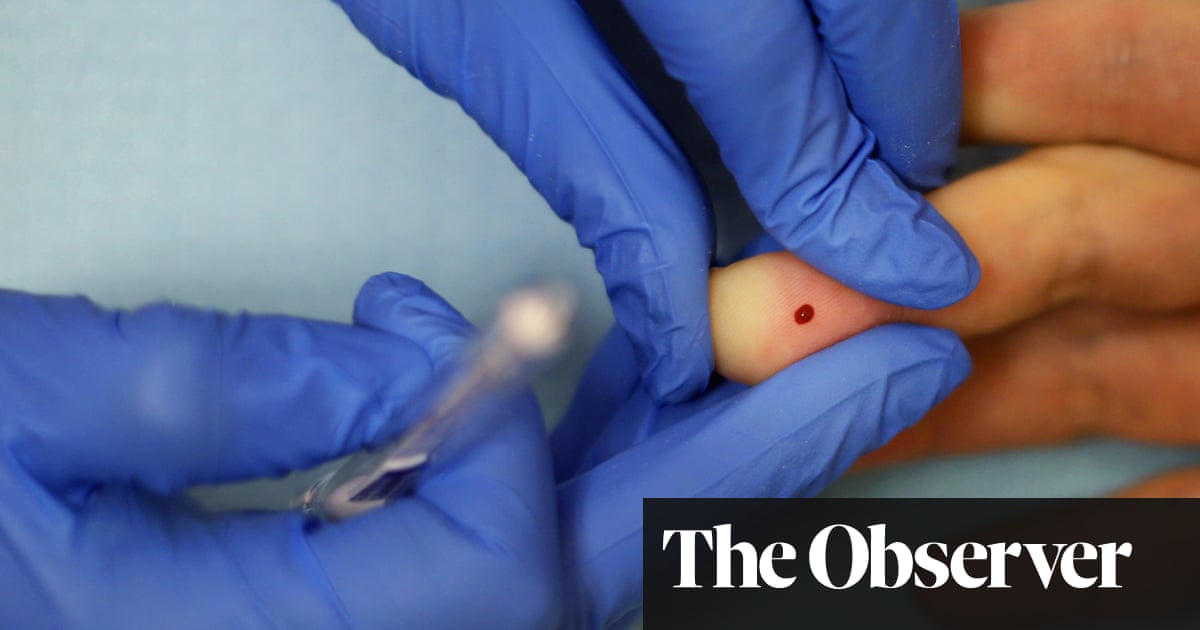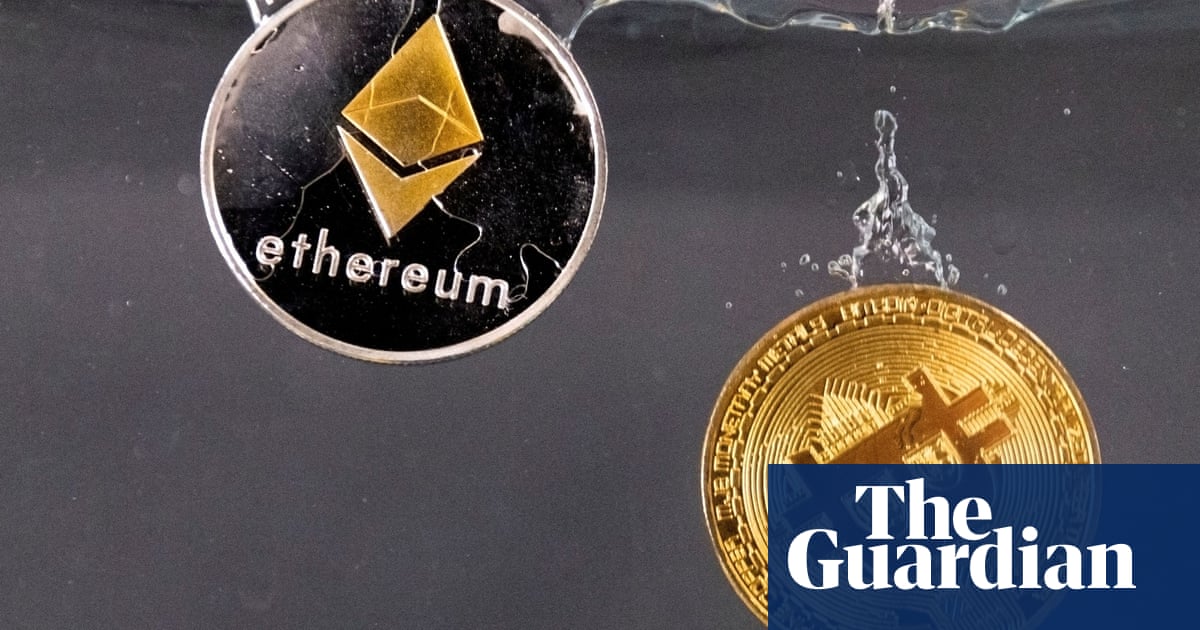Most great female actors get to play a nun at some point in their career: a kind of thespian rite of passage that comes to many in their grande dame years. Isabella Rossellini, however, checked off that box in her very first screen appearance, aged 24: in 1976’s little-remembered Vincente Minnelli musical A Matter of Time, in a bit part opposite her mother, screen legend and three-time Oscar winner Ingrid Bergman.
“My mum was playing an eccentric countess, who’s dying, and she thought one of the nuns assisting her dying could be me,” she remembers. “Because we resembled each other, she thought it would be interesting for the countess to see her young self in me, in a kind of hallucination. But also, I think she wanted to tempt me to be an actress because she loved acting so much.” She grimaces at the memory. “It was not successful at all.”
Nearly half a century later, Rossellini has again donned a wimple, to rather more successful effect, in Edward Berger’s gripping Vatican thriller Conclave. Playing Sister Agnes, a sternly watchful nun overseeing the housekeeping for a high-stakes papal election, she’s a deceptively quiet, background figure for much of the proceedings – eventually granted one short, blistering speech that tilts the film on its axis. “I play a shadow,” she says. “The Catholic church is very patriarchal, the cardinals are only men, but the nuns aren’t subservient. They have enormous power. It was important to underline their silence, but that silence doesn’t have to be powerless. I grew up in Rome and went to Catholic school. I knew how to play that because I lived it.”
At 72, Rossellini is happy to take smaller roles with fewer lines and concentrated impact. In playing Sister Agnes, she thought back to her lengthy modelling career, and something she learned from the photographer Richard Avedon: “He said, if you are modelling, you’re acting. You’re like a silent movie star because models don’t have words, but still emote. You’re not only present if you have dialogue. As Agnes, I don’t have much dialogue, but I’m a definite presence.”
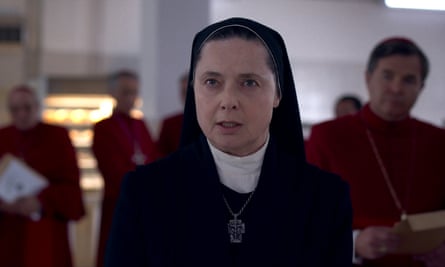
While Rossellini has never taken an extended screen hiatus, exactly, her acting career has felt rejuvenated in recent years – a full graduation into offbeat character actor territory, with lively supporting parts in films ranging from Alice Rohrwacher’s La Chimera to David O Russell’s Joy, while her unmistakeable Italo-American accent has featured in animated titles such as Marcel the Shell With Shoes On and The Incredibles 2.
“I feel that too,” she says when I suggest that she’s mounted a subtle screen comeback. “My mum died when she was 67, younger than I am now. But she told me that sometimes actresses have a slump in their career when they are neither young nor old: 45 to 55 or 60. It’s not that you cannot have love interests, but that story is not told. But then when you get older, she said, you get more parts.”
In middle age, with credits such as Blue Velvet and Death Becomes Her to her name, Rossellini sensed the plum parts tailing off, as Bergman had warned. So she went back to university, in an academic pursuit very different from her early studies in costume design at Italy’s academy of costume and fashion – returning instead to her childhood passion for animals. “I took a masters in ethology, which is the science of animal behaviour, and started to make my own little films about that, and started to write monologues. So I created a parallel career to my acting.” She smiles. “But then acting came back.”
It wasn’t only leading roles that deserted Rossellini in her 40s: her modelling career – in particular, her celebrity-defining gig as the face of Lancôme cosmetics – took a hit too. Told at 43 by Lancôme executives that she was too old to represent the brand, she was summarily dropped. “The rationale they gave me at the time was that advertising addresses dreams, and that people dream of being young,” she says. “But that didn’t seem to be the dominant dream, as it was reported to me: when I asked my friends, do you want to stay young for ever, they didn’t. Marketing research says women appreciate a 42-year-old advertising anti-ageing cream instead of a 20-year-old, but they ignore that part. At first, there was a reaction from some customers who were offended that I’d been dropped, and I thought, maybe they’ll get me back somehow. But then 20 years went by.”
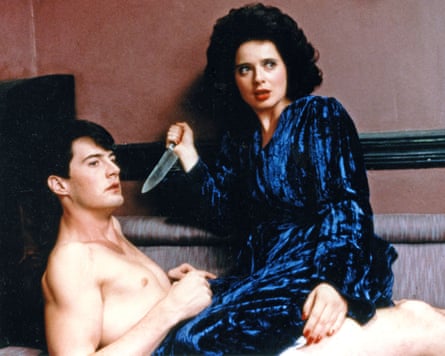
In 2016, aged 63, Rossellini was surprised to get a call from Lancôme, inviting her back on board. “The difference now is that the executives are women. And they understand that this idea of makeup used just as a tool of seduction is reductive. Because makeup is for everybody: it’s much more inclusive and is a tool of creativity. But when they called, I asked them, if you just want an older person because you want to be inclusive, why not call Helen Mirren or Meryl Streep? With me, you again have the press controversy because they remember when you didn’t renew my contract. But they said, no, you can represent that change in society, because you’ve been on both sides of it.”
She notes with some relish the irony of her having been cast in Death Becomes Her, Robert Zemeckis’s satire of Hollywood ageism, as a supernatural merchant of eternal youth – shortly before the Lancôme fallout. “I was delighted to be in that film,” she cackles, fishing for her phone to show me an Instagram image of nail art designed in the film’s honour. It’s not the last time Rossellini, an avid Instagrammer, consults the app during our interview: her own account is a busy riot of colour and cheer, with cute animal snaps adjacent to flamboyant outfit pics.
I ask if she has seen Coralie Fargeat’s horror film The Substance, which strikes me as a kind of present-day Death Becomes Her: magnifying concerns about Hollywood discarding older women, and pushing them into more violently extreme terrain. Her face immediately lights up. “It’s brilliant,” she enthuses. “I love the feminist rage of it, and the humour in that.” She heaps praise on its stars, Demi Moore – “I always think that she represents that eternal youth, and yet she’s very wise and accepting” – and Margaret Qualley, whom she only recently learned is, like her, an industry baby.
“I was amazed by that young actress playing the double, the cruelty of her face when she becomes a murderer – and then somebody told me she’s Andie MacDowell’s daughter,” she says. “And I was so proud in a way. Right on! We daughter-ofs!”
It’s an obvious cue for a delicate question, one that can draw brittle responses from other sons- and daughters-of, to borrow Rossellini’s phrasing. As the daughter of not just Bergman, but revered Italian neorealist director Roberto Rossellini, is she offended by the discourse around the term “nepo baby”? She frowns, and asks me to repeat the words. After a second, she laughs. “Oh, nepo like nepotism? That’s very funny.” Perhaps the term isn’t quite as prevalent as I thought.
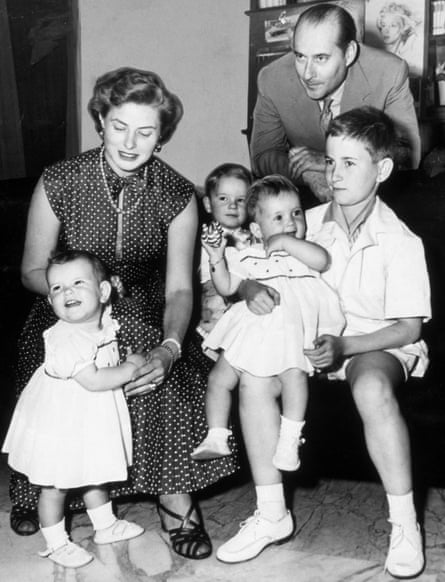
This aside, she has mixed feelings on the subject, having found inherited celebrity something of a double-edged sword at the outset of her career. “Of course it opens the door, because people are curious to see you,” she says. “But I don’t know that it was an advantage. The judgment is much more severe, and you don’t have time to grow.”
She thinks back to the first substantial film role she had, three years after her fleeting appearance in A Matter of Time, in 1979’s The Meadow, a solemn social-realist romance by fraternal Italian directing duo Paolo and Vittorio Taviani. The project was a prestigious one – the brothers had won the Palme d’Or at Cannes with their previous film, Padre Padrone – and many critics, particularly on home turf in Italy, were not kind. “It wasn’t a bad film, and I didn’t do a bad job, now that I look back,” she says with a shrug. “But there were big expectations, and the reviews were excruciating. I stopped and said, I’m not going to be an actress.”
Bar a quirky appearance as herself in the 1980 Roberto Benigni comedy In the Pope’s Eye, she kept her word for six years, as a modelling career beckoned instead, and her personal life got complicated. A three-year marriage to Martin Scorsese, ending in 1982, didn’t tempt her back into the movies; a second marriage, to fellow model Jon Wiedemann, was also short-lived, but gave her her daughter Elettra – once a model, in the family tradition, now a food writer.
Elettra was born less than a year after Bergman’s death from breast cancer in 1982. Amid her grief and the travails of new motherhood, Hollywood came calling: when offered her first American film, the glossy 1985 dance drama White Nights, Rossellini finally felt ready to take on the career her mother had wanted for her. She recalls: “Mama said, it’s ridiculous that you’re not trying to act, just because you feel that you’ll be compared with me. You’ll be compared with me at the beginning. And then they’ll forget. And she was right. But at the beginning, it was tough.”
after newsletter promotion
She positively beams with pride when talking about her parents, and still pores over the films they made: she delights in pointing out that she’s wearing her mother’s jewellery from the shoot of Journey to Italy, the gorgeous, bittersweet marital drama that Bergman and Rossellini made together when their daughter was a mere toddler. I ask at what age Rossellini became aware that her mother was a star; the realisation was a slow one. “When you’re a little girl, you don’t know,” she says. “I thought that parents were just famous, you know? I remember going to school and asking my friends, is my mum as famous as Joan Crawford? What about Greta Garbo? I didn’t understand it.”
Rossellini’s own daughter grew up accustomed to seeing her mother’s face on billboards, though did not immediately connect that with celebrity. “When I did the Lancôme ads, they were everywhere, in every airport. And my daughter was going to school, she was five or six, and they were teaching the children to remember their last name and their address just in case they got lost. So they asked Elettra: if you’re lost, what do you do? And she said, well, I will sit under Mama’s poster and she will find me. She thought all advertisements were posters of mothers and fathers, in case their children got lost.”
It’s a source of sadness to Rossellini that neither of her two children – she adopted her son, Roberto, in 1993 – ever met her parents, though she finds that classic films can function in much the same way as family albums. “When my daughter was maybe 10 or so, and she was asking about her grandmother, and I said, let me find her. So I just turned on the TV and there she was, in Anastasia.”
Rossellini’s most celebrated screen role, as an abused nightclub singer in David Lynch’s suburban nightmare Blue Velvet, cued a five-year relationship with Lynch himself; in the mid-1990s, she was engaged to Gary Oldman for two years before they broke up. After such a run of high-profile romances, however, she’s been happily unpartnered for the past 25 years. Did she make a conscious decision to remain single?
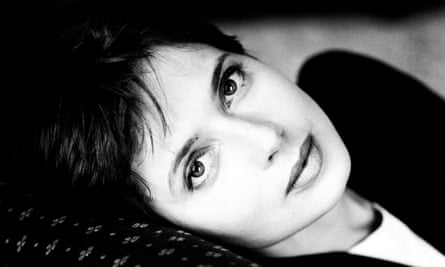
She shakes her head. “I think that’s just how life panned out. I had children and it was difficult to have a relationship with a man who was not the father. And I started thinking, OK, I’ll take care of the children and then when they’re grown up, I’ll be available for a partner. But then I found, I have to say, the great serenity of being single.” She pauses, as if to savour the words. “And if I hadn’t, I don’t think I would have been able to do all that I’ve done. I have freedom of movement.”
“Maybe if I’d found somebody and fallen in love,” she says airily, not finishing the thought. “But I didn’t look for a partner just to not be alone, because I wasn’t alone. When you’re with somebody, you become very vulnerable to the ups and downs of the other person. So I was able to keep an evenness and a concentration that allowed me to study, to get a master’s degree in my 50s. I could just zero in on what I had wanted to do when I was 14.”
We are talking, again, about that ethology degree – which she eventually put to use in 2013 by buying and managing a 28-acre farmstead, 60 miles from New York City in Long Island. A conservation-minded community space where animals – including poultry, sheep and goats – are reared but never slaughtered, Mama Farm was born of weekend trips to the countryside with her children. “Then a piece of land came available and somebody suggested, why don’t you buy it and make a farm and take it away from the developer? And I did. It was ignorance and optimism. I didn’t know how hard it was. It’s still very hard.” She laughs. “But I don’t have a lot: I don’t want to die and have my children be like, Oh my God, what do we do with 5,000 sheep?”
Rossellini’s life is a happy balance of family, farming, film and other, more particular passions: she’s excited to begin touring her self-written one-woman show, Darwin’s Smile – “about the expression of emotion of actors and animals” – in France. For someone who has long been the face of anti-ageing products, she’s decidedly pro-ageing herself.
“You know, you get wrinkles and you get fat and you lose a kind of beauty – that is true,” she says. “But they never talk about the freedom that comes with that. More than freedom, a lightness. When you’re young, you have so many things to prove. You have to prove that you are intelligent, that you’re financially independent, that you’re a good parent. There are so many obligations. And when you’re old, you’re not proving yourself any more. I don’t know if I’m that intelligent or not. I am who I am. You start to say, if I don’t do what I want to do now, I will never do it. And life becomes more fun.”
-
Conclave opens in UK cinemas on Friday 29 November

 3 months ago
48
3 months ago
48

